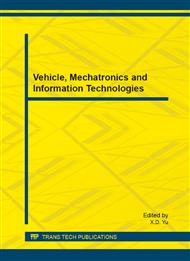p.4583
p.4587
p.4590
p.4595
p.4600
p.4604
p.4609
p.4614
p.4619
Bargaining in a Push Supply Chain System under Partial Cross Ownership
Abstract:
Supply chain under partial cross ownership (PCO) refers to the dyad in which each one holds part of its partners shares. In a two-echelon push supply chain under the partial cross ownership, when the operational decisions are bargained, the supply chain is coordinated, and the allocation of the chain profit is dependent on the bargain coefficients and the reserve profits, and independent of the PCO structure: letting the retailer hold part of the suppliers shares doesnt affect the chain efficiency and both players profits. Similarly, letting the supplier hold part of the retailers shares doesnt affect the chain efficiency and both players profits.
Info:
Periodical:
Pages:
4600-4603
Citation:
Online since:
August 2013
Authors:
Keywords:
Price:
Сopyright:
© 2013 Trans Tech Publications Ltd. All Rights Reserved
Share:
Citation:


